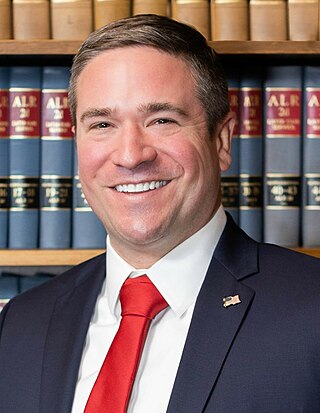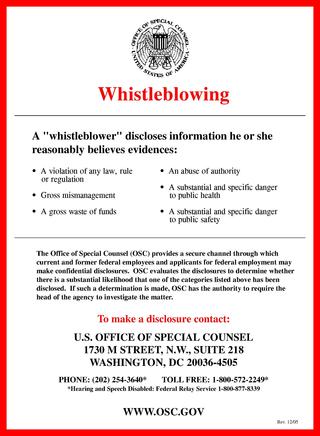Freedom of information laws allow access by the general public to data held by national governments and, where applicable, by state and local governments. The emergence of freedom of information legislation was a response to increasing dissatisfaction with the secrecy surrounding government policy development and decision making. In recent years Access to Information Act has also been used. They establish a "right-to-know" legal process by which requests may be made for government-held information, to be received freely or at minimal cost, barring standard exceptions. Also variously referred to as open records, or sunshine laws, governments are typically bound by a duty to publish and promote openness. In many countries there are constitutional guarantees for the right of access to information, but these are usually unused if specific support legislation does not exist. Additionally, the United Nations Sustainable Development Goal 16 has a target to ensure public access to information and the protection of fundamental freedoms as a means to ensure accountable, inclusive and just institutions.

The Freedom of Information Act, 5 U.S.C. § 552, is the United States federal freedom of information law that requires the full or partial disclosure of previously unreleased or uncirculated information and documents controlled by the U.S. government, state, or other public authority upon request. The act defines agency records subject to disclosure, outlines mandatory disclosure procedures, and includes nine exemptions that define categories of information not subject to disclosure. The act was intended to make U.S. government agencies' functions more transparent so that the American public could more easily identify problems in government functioning and put pressure on Congress, agency officials, and the president to address them. The FOIA has been changed repeatedly by both the legislative and executive branches.

The Illinois attorney general is the highest legal officer of the state of Illinois in the United States. Originally an appointed office, it is now an office filled by statewide election. Based in Chicago and Springfield, the attorney general is responsible for providing legal counsel for the various state agencies including the governor of Illinois and Illinois General Assembly, as well as conducting all legal affairs pertaining to the state.
An unfair labor practice (ULP) in United States labor law refers to certain actions taken by employers or unions that violate the National Labor Relations Act of 1935 29 U.S.C. § 151–169 and other legislation. Such acts are investigated by the National Labor Relations Board (NLRB).
Public records are documents or pieces of information that are not considered confidential and generally pertain to the conduct of government.
The Reporters Committee for Freedom of the Press(RCFP) is a nonprofit organization based in Washington, D.C., that provides pro bono legal services and resources to and on behalf of journalists. The organization pursues litigation, offers direct representation, submits amicus curiae briefs, and provides other legal assistance on matters involving the First Amendment, press freedom, freedom of information, and court access issues.

Amendment 41 is a citizen initiative adopted by Colorado voters in the 2006 general election. Amendment 41 has three main sections.

The Office of the Missouri Attorney General was created in 1806 when Missouri was part of the Louisiana Territory. Missouri's first Constitution in 1820 provided for an appointed attorney general, but since the 1865 Constitution, the Attorney General has been elected. As of January 2023, there have been 44 attorneys general in Missouri.

onstitutional complaintThe Constitutional Court of Slovenia is a special court established by the Slovenian Constitution. Since its inception, the Court has been located in the city of Ljubljana. It is the highest court in the country for reviewing the constitutionality and protection of human rights and fundamental freedoms, otherwise the highest court in the country is the Supreme Court of the Republic of Slovenia. The constitutional court is not part of any branch of government and is an independent state body.
United States Department of Justice v. Reporters Committee for Freedom of the Press, 489 U.S. 749 (1989), was a case before the United States Supreme Court.
Federal Communications Commission v. AT&T Inc., 562 U.S. 397 (2011), was a United States Supreme Court case on aspects of corporate personhood. It held that the exemption from Freedom of Information Act disclosure requirements for law enforcement records which "could reasonably be expected to constitute an unwarranted invasion of personal privacy" does not protect information related to corporate privacy.

A whistleblower is a person who exposes any kind of information or activity that is deemed illegal, unethical, or not correct within an organization that is either private or public. The Whistleblower Protection Act was made into federal law in the United States in 1989.

The Office of the Attorney General (OAG) is an agency of the Oklahoma state government that is headed by the Attorney General of Oklahoma. The OAG is responsible for supervising the administration of justice across the State, providing legal assistance to the State government, and prosecuting violators of State law.

Access to public information and freedom of information (FOI) refer to the right of access to information held by public bodies also known as "right to know". Access to public information is considered of fundamental importance for the effective functioning of democratic systems, as it enhances governments' and public officials' accountability, boosting people participation and allowing their informed participation into public life. The fundamental premise of the right of access to public information is that the information held by governmental institutions is in principle public and may be concealed only on the basis of legitimate reasons which should be detailed in the law.
Campaign for Accountability (CfA) is a liberal 501(c)(3) non-profit ethics watchdog group headquartered in Washington, D.C. CfA was co-founded in May 2015 by Anne Weismann, former legal counsel for the watchdog group Citizens for Responsibility and Ethics in Washington (CREW), and Louis Mayberg, former chairman of CREW. CfA group states that it "uses research, litigation and aggressive communications to expose misconduct and malfeasance in public life."

Executive Order 13769 was signed by U.S. President Donald Trump on January 27, 2017, and quickly became the subject of legal challenges in the federal courts of the United States. The order sought to restrict travel from seven Muslim majority countries: Iran, Iraq, Libya, Somalia, Sudan, Syria, and Yemen. The plaintiffs challenging the order argued that it contravened the United States Constitution, federal statutes, or both. On March 16, 2017, Executive Order 13769 was superseded by Executive Order 13780, which took legal objections into account and removed Iraq from affected countries. Then on September 24, 2017, Executive Order 13780 was superseded by Presidential Proclamation 9645 which is aimed at more permanently establishing travel restrictions on those countries except Sudan, while adding North Korea and Venezuela which had not previously been included.
McBurney v. Young, 569 U.S. 221 (2013), was a United States Supreme Court case in which the Court upheld Virginia and all states' right to restrict citizen requests for state government documents to citizens of that state.

Illinois Public Access Opinion 16-006 is a binding opinion issued in 2016 by the Illinois Attorney General pursuant to the state's Freedom of Information Act (FOIA). Issued in the aftermath of the murder of Laquan McDonald, the opinion addressed a public records request from CNN for private emails by officers of the Chicago Police Department (CPD) related to the incident. After CPD denied CNN's request, the Attorney General's office, led by Lisa Madigan, ruled that the police officers' private emails about McDonald's murder were subject to public disclosure, even though those emails were communicated on accounts outside of the police department's email servers. The binding opinion was later upheld by the Circuit Court of Cook County, though CNN never received the records that it had requested.

The Illinois Freedom of Information Act, 5 ILCS 140/1 et seq., is an Illinois statute that grants to all persons the right to copy and inspect public records in the state. The law applies to executive and legislative bodies of state government, units of local government, and other entities defined as "public bodies". All records related to governmental business are presumed to be open for inspection by the public, except for information specifically exempted from disclosure by law. The statute is modeled after the federal Freedom of Information Act and serves a similar purpose as freedom of information legislation in the other U.S. states.

City of Champaign v. Madigan, 2013 IL App (4th) 120662, 992 N.E.2d 629 (2013), is a case decided by the Illinois Appellate Court in 2013 concerning the state's Freedom of Information Act (FOIA). The court ruled that messages sent and received by elected officials during a city council meeting are subject to public disclosure, even when those communications are stored on personal electronic devices. The case addressed a public records request from a reporter for The News-Gazette in Champaign, Illinois, who observed Champaign city council members and the mayor using their personal electronic devices to send messages, outside the public's view, during a city council meeting.













